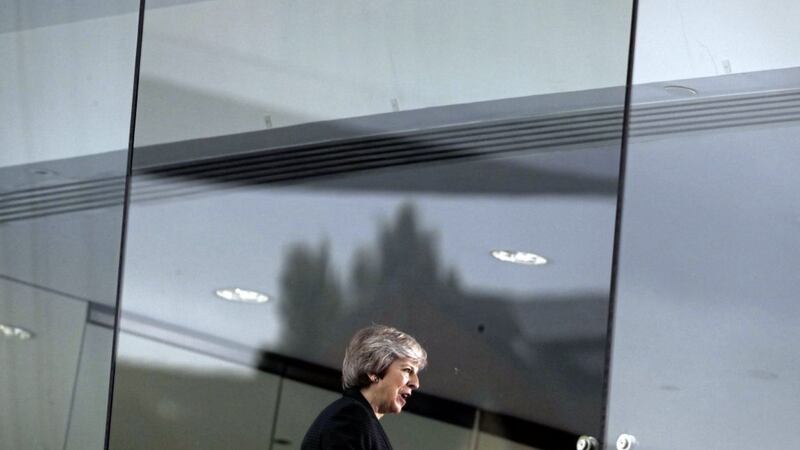NOT for the first time, the future of Irish nationalism rests with English politics.
The unpredictable nature of current events in England is shaping up like a repeat of the 30 years following 1884, when the various Home Rule Bills for Ireland were defeated or delayed in Westminster by a combination of electoral uncertainty, English duplicity and Irish incompetence.
Over a century later, the outcome of parliamentary and party divisions over Brexit will determine the economic nature of the Irish border.
That, in turn, will shape the political fortunes of Irish nationalism which, in the short term at least, needs a hard border, threatened or real, to add urgency to the case for an economically united Ireland.
With a soft border, however, the case for Irish political unity will probably melt away, leaving nationalists as rebels without a cause.
Certainly they would be rebels without a border poll which, after 30 years of war and 20 years of proxy war, is their last remaining weapon - and a poor one it is. A soft border will neuter nationalism for some time to come.
So what is likely to happen in England and how will it impact on Irish politics? We cannot be sure, but history suggests that, as always, Britain will retain its political and economic power in Ireland.
The evidence lies in the attitudes and objectives of three political players and one spectator.
The Conservative and Labour parties represent English interests and the Irish government represents Irish economic nationalism.
The spectator is Sinn Féin which, like a dog barking at a car, criticises the Tories from the safety of Ireland, but consistently declines the opportunity to bring down Theresa May's government.
Meanwhile, it welcomes unelected royalty here, but protests against a democratically elected prime minister. How very republican.
On two occasions this week, Sinn Féin could have toppled the Tories in Westminster. Instead it urged Leo Varadkar to "step in" to the internal parliamentary row in London, even though they and the DUP are the only Irish parties which can influence Westminster.
Sinn Féin's claim that it is "strongly influencing" the Brexit negotiations is sadly reminiscent of The Skibbereen Eagle, a local newspaper in Cork, which in 1898 warned the Emperor of Russia that it was keeping an eye on him.
The party's aim seems to be to translate fears about a hard Brexit into electoral opportunities north and south by doing nothing to prevent it. They have failed to recognise that England's politics are now Ireland's opportunity.
That leaves Fine Gael as the unlikely leader of pragmatic Irish nationalism.
Quite reasonably, Leo Varadkar has welcomed Mrs May's efforts to soften Brexit, while distancing himself ever so slightly from the less flexible EU stance. At the same time he has begun recruiting 1,000 customs and veterinary inspectors, just in case.
He recognises that there is no Westminster majority for overturning the 2016 referendum result and equally no majority for a no-deal scenario, because Labour and Conservatives are deeply divided over Brexit.
Labour has failed to take advantage of chaos in the Tory ranks and has opted instead for the softest possible Brexit, thus aligning itself broadly with Mrs May.
That leaves her with a good chance of remaining in office. It will do her no harm to have been forced in parliament to abandon aspects of the cabinet deal she shaped at Chequers.
The EU would probably have rejected her facilitated customs arrangement in later negotiations, so the hard-line Brexiteers in parliament did the EU's work for them, a point which Leo Varadkar quickly accepted.
While her two-day visit here was a triumph of style over substance, she clearly recognised the political risks in allowing an Irish economic issue to ferment into a political cause.
Just as Gladstone defused the more rebellious elements of Irish nationalism by ending the landlord system in rural Ireland, Mrs May can see that a soft border will take the sting out of modern Irish nationalism.
Gladstone came here in 1877 and his visits to "farms and cottages and people" appear to have persuaded him of the benefits of Irish Home Rule.
Mrs May skipped the farms and cottages here, but the people she met have left her in no doubt of the economic need for a soft border.
But just as parliamentary politics prevented Gladstone from delivering Home Rule, she might also be unable to deliver on her Irish policy.
Her success or failure in doing so will not only determine her political legacy, it will shape the long-term fortunes of Irish nationalism in the 21st Century.
There is more at stake here than economics.









